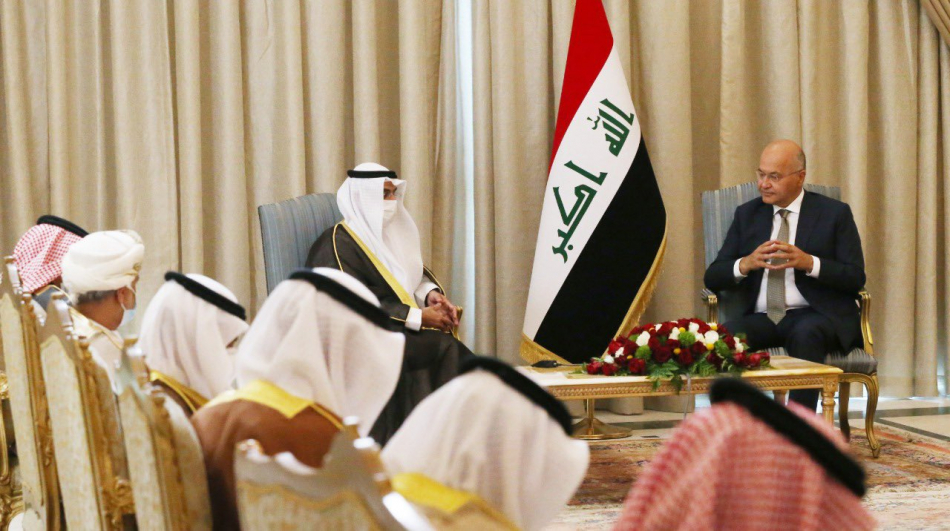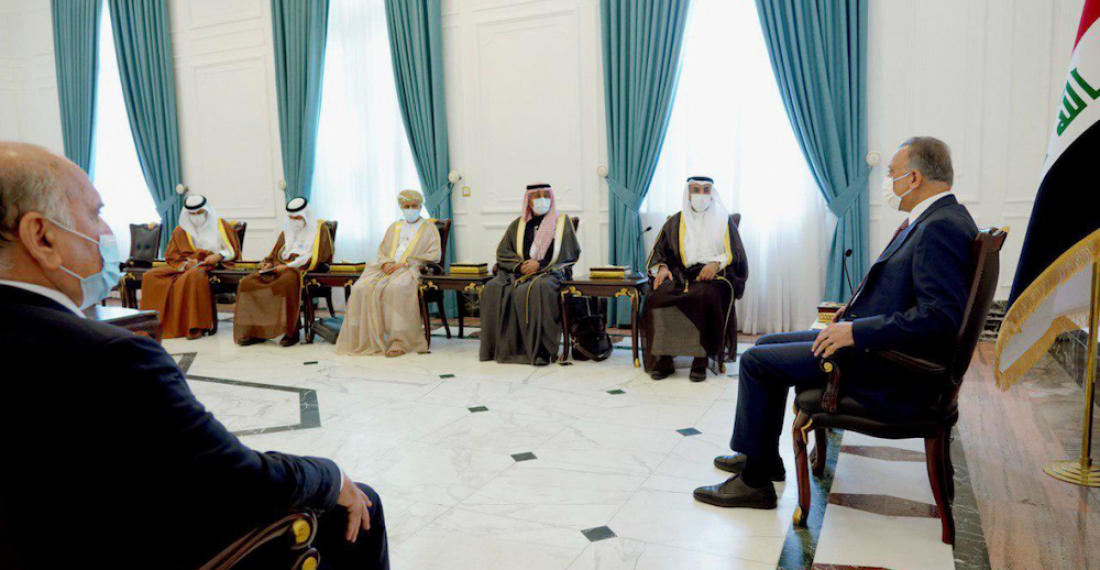Gulf Cooperation Council (GCC) Secretary-General Nayef Al-Hajraf arrived in Baghdad on Monday where he iterated the GCC's support for Iraq in various fields.
Al- Hajraf met with President Barham Salih, Prime Minister Mustafa al-Kadhimi and Foreign Minister Fuad Hussein to discuss bolstering relations.
A statement from the Iraqi presidency underscored the importance of bolstering ties in the interest of the people and boost peace. President Salih noted the challenges in the region, especially terrorism and economic hardships, urging joint cooperation to confront them.
“A secure sovereign Iraq with solid relations with its Arab and Islamic surroundings will serve as the foundation for bolstering security, stability and development in the region,” he stressed.
The Iraqi leader praised the success of the latest Gulf summit that was hosted by Saudi Arabia at Al Ula and which mended a rift in the regional group. The reconciliation will help “boost the GCC, its vital role and positive impact on the security and stability of the region”, he said.

On his part, Prime Minister al-Kadhimi underlined the need to achieve cooperation in various political, cultural, economic and business sectors. He urged for speeding up efforts to set up the electrical grid between Iraq and the Gulf states, as well as boost trade.
In 2019, Iraq had signed a deal with the GCC to build a power line that would import 500 megawatts of electricity.
Al-Hajraf, for his part, underscored the GCC’s commitment to supporting the security, safety and sovereignty of Iraq and backing it in its fight against terrorism.
“The Gulf states are supporting Iraq in imposing its sovereignty as the stability, security and prosperity of Iraq is important to the region,”
Iraq is still recovering form a devastating period between 2014 and 2017 when extremist group Daesh occupied swathes of its territory.
Relations between Iraq and Gulf countries have steadily improved in recent years. A donor conference in Kuwait in 2018, to help the country rebuild, raised pledges of $30 billion.
In remarks to London Arab language newspaper Asharq Al-Awsat, Dr. Ihssan Shmary, head of the Center for Political Thinking in Iraq, said Hajraf’s visit was driven by the united Gulf stance to support relations with Iraq on all levels.
Furthermore, Hajraf is seeking to convey the support of Gulf countries to Iraq’s current approach, which they believe is heading on the “right path.”







